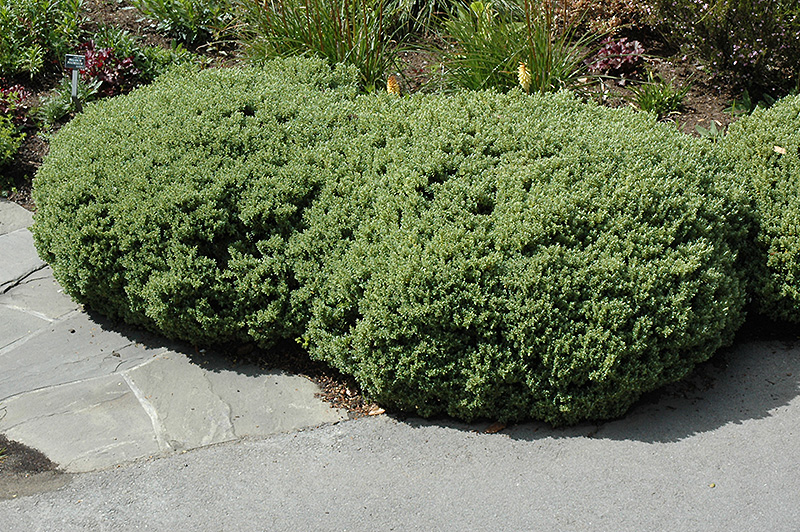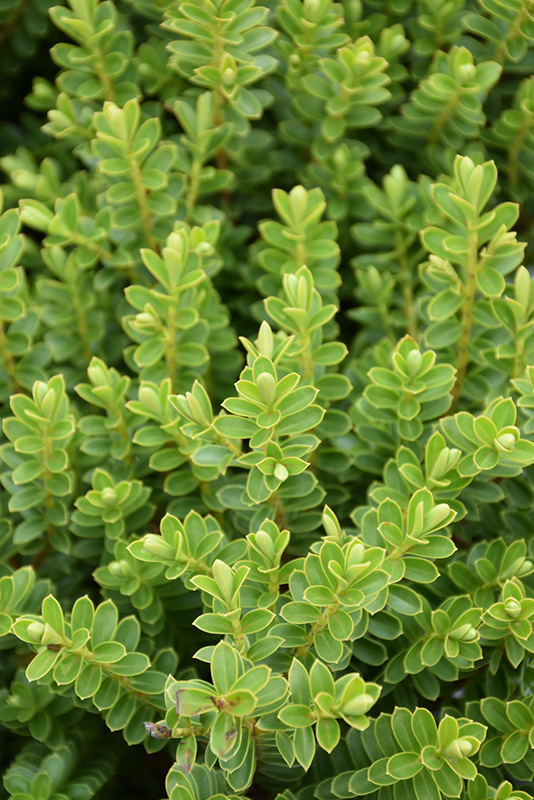Height: 3 feet
Spread: 24 inches
Sunlight:
![]()
![]()
Hardiness Zone: 7b
Other Names: Hebe odora; Shrubby Veronica
Description:
An upright, rounded evergreen shrub with interesting spear shaped foliage that are bright green and glossy; lovely white flowers in stunning contrast; an excellent addition to the shrub border
Ornamental Features
Boxleaf Hebe has masses of beautiful corymbs of white flowers rising above the foliage from late winter to early spring, which are most effective when planted in groupings. It has attractive bluish-green evergreen foliage. The small glossy pointy leaves are highly ornamental and remain bluish-green throughout the winter.
Landscape Attributes
Boxleaf Hebe is a dense multi-stemmed evergreen shrub with an upright spreading habit of growth. Its relatively fine texture sets it apart from other landscape plants with less refined foliage.
This is a relatively low maintenance shrub, and should only be pruned after flowering to avoid removing any of the current season's flowers. It has no significant negative characteristics.
Boxleaf Hebe is recommended for the following landscape applications;
- Mass Planting
- General Garden Use
- Container Planting
Planting & Growing
Boxleaf Hebe will grow to be about 3 feet tall at maturity, with a spread of 24 inches. It has a low canopy. It grows at a medium rate, and under ideal conditions can be expected to live for approximately 10 years.
This shrub does best in full sun to partial shade. It does best in average to evenly moist conditions, but will not tolerate standing water. It is not particular as to soil type or pH, and is able to handle environmental salt. It is highly tolerant of urban pollution and will even thrive in inner city environments. This species is not originally from North America.
Boxleaf Hebe makes a fine choice for the outdoor landscape, but it is also well-suited for use in outdoor pots and containers. With its upright habit of growth, it is best suited for use as a 'thriller' in the 'spiller-thriller-filler' container combination; plant it near the center of the pot, surrounded by smaller plants and those that spill over the edges. It is even sizeable enough that it can be grown alone in a suitable container. Note that when grown in a container, it may not perform exactly as indicated on the tag - this is to be expected. Also note that when growing plants in outdoor containers and baskets, they may require more frequent waterings than they would in the yard or garden.



